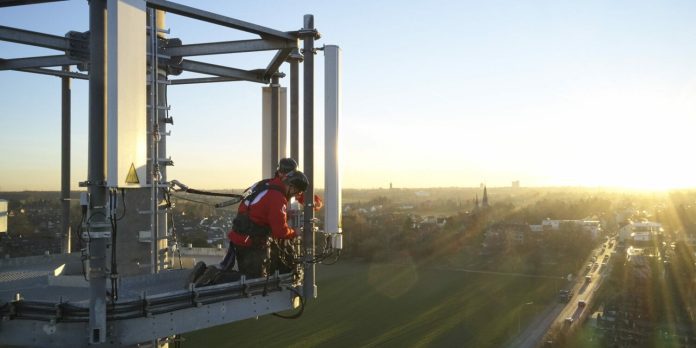Vodafone said that around half of the population in Germany is now connected to its 5G SA network
German operator Vodafone completed more than 1,200 construction projects within the first quarter of the year, effectively expanding its 5G Standalone (5G SA) network, the telco said in a statement.
Vodafone said it has put 155 new mobile phone base stations into operation and installed additional antennas for LTE, 5G and 5G SA at almost 1,100 other locations in order to expand broadband capacities.
The carrier noted that it carried out 170 measures which served to eliminate existing LTE dead spots or to avoid new LTE dead spots.
Regarding the expansion of the telco’s new 5G SA network, the company said that almost 40% of the construction work in the first three months of 2024 served to expand this network across the country. As a result, around half of the population in Germany is now covered by Vodafone’s 5G SA network.
“The network expansion also flourished due to the weather, especially in March 2024: Vodafone completed its mobile communications construction projects at over 550 locations. On average, three new mobile phone stations were put into operation every working day in March – a total of 67 new locations were switched on and integrated into the Vodafone network,” the company said. As a result of these new additions, Vodafone’s mobile network grew last month to over 25,000 radio stations across Germany, reaching 99.9% of the population.
Vodafone Germany had launched its 5G SA network in 2022 in partnership with Ericsson, Nokia, Qualcomm and Oppo. For the 5G expansion, Vodafone is currently relying on frequencies in the 3.6 GHz, 1.8 GHz and 700 MHz bands in large urban areas, residential areas and suburbs and rural areas across Germany.
Vodafone initially launched its 5G network in Germany in 2019, using 3.5 GHz frequencies that it acquired from Telefónica in 2018.
The company had previously completed a field test with Open RAN (O-RAN) technology in Plauen, in the Saxony region.
The Germany carrier had announced that it will carry out comprehensive pilot projects for open 5G radio access networks at several locations in Germany. The first two stations for the operator’s O-RAN technology are located in rural Bavaria. The pilots are scheduled to start in early 2023 and mark the beginning of a broader deployment of O-RAN technology in Vodafone’s European mobile networks.
The pilot projects will use O-RAN hardware and software, which Vodafone has successfully tested in the U.K. Samsung is currently supplying mobile technology and software for these O-RAN trials.

